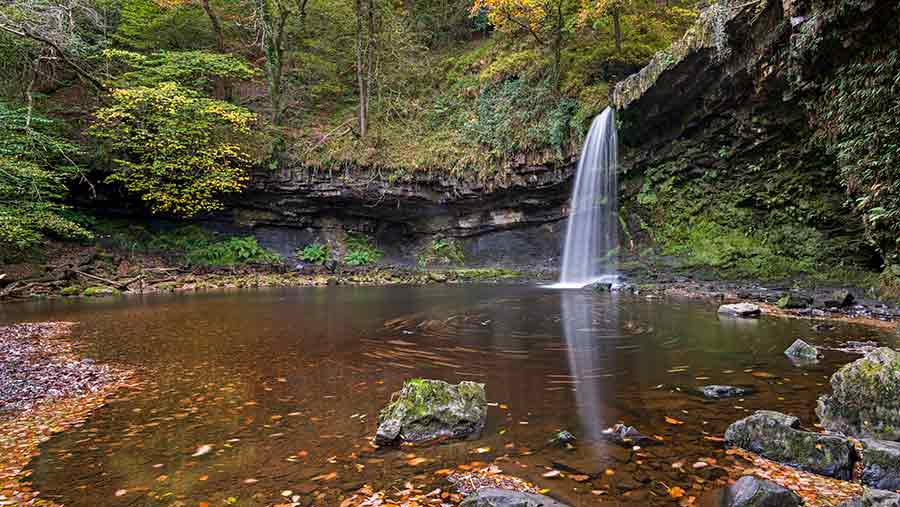Farmers angered by ‘all-Wales’ approach to NVZs
 Sgwd Gwladus waterfall on the Afon Pyrddin river © Adam Burton/RobertHarding/REX/Shutterstock
Sgwd Gwladus waterfall on the Afon Pyrddin river © Adam Burton/RobertHarding/REX/Shutterstock The whole of Wales could be designated as a nitrate-vulnerable zone (NVZ) in 2017.
The Welsh government has set out plans to adopt a “whole-territory” approach, a policy already in place in Northern Ireland – but it is also toying with a targeted approach that would increase the area of land designated from 2.4% to 8%.
The government launched a consultation on its proposals last week but, whatever the outcome, Welsh farming minister Lesley Griffiths insisted the new regulations must come into force next year.
See also: How to meet NVZ rules when expanding a dairy
Wales is bound by EU regulation to reduce the agricultural pollution of streams and rivers, but the minister is adamant that nitrate pollution will be tackled, whatever the outcome of Brexit negotiations.
“Wales prides itself on producing high-quality food in a country with a reputation of a healthy environment,” she said.
“Much of Wales’ trade in agricultural produce is based on this fundamental assumption and there is great risk to the industry if this reputation is damaged.’’
Whole-country approach
The consultation document suggests that a whole-Wales approach would avoid price disparities between land values and farm production costs. It would also help avoid perceived inequality between designated farms and those that fall outside zones.
A targeted approach, the system already in place in Wales, would aim to reduce pollution where it occurs. The consultation document maintains that this option encapsulates the “polluter pays” principle.
“It also ensures that burdens are not imposed on those whose land does not drain to nitrate-polluted waters and therefore assures that any costs to the industry are directly associated with the implementation of the regulations,’’ it adds.
The Farmers’ Union of Wales said this option would mean significant changes to NVZ designation in Pembrokeshire, Carmarthen and Anglesey, but it remains “resolutely against’’ the whole-Wales approach.
“There is a distinct lack of evidence for a whole-territory approach. The difficulties and costs associated with regulatory compliance for farms whose land does not drain into nitrate-polluted waters makes this option both unwarranted and unreasonably excessive,” said Hazel Wright, the union’s senior policy officer.
NFU meeting
In Pembrokeshire, NFU Cymru has called a meeting of farmers whose land adjoins the Cleddau rivers because all these farms would fall into the proposed targeted designation.
NFU Cymru’s Pembrokeshire county chairman, Walter Simon, said the union was “very much opposed’’ to the proposed designations because of the increased costs and regulatory burden on farm businesses and the wider rural economy.
